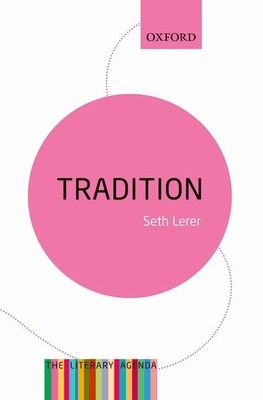
- We will send in 10–14 business days.
- Author: Seth Lerer
- Publisher: Oxford University Press, USA
- ISBN-10: 0198736282
- ISBN-13: 9780198736288
- Format: 12.7 x 19.3 x 1 cm, softcover
- Language: English
- SAVE -10% with code: EXTRA
Reviews
Description
The Literary Agenda is a series of short polemical monographs about the importance of literature and of reading in the wider world and about the state of literary education inside schools and universities.The category of "the literary" has always been contentious. What is clear, however, is how increasingly it is dismissed or is unrecognised as a way of thinking or an arena for thought. It is skeptically challenged from within, for example, by the sometimes rival claims of cultural history, contextualized explanation, or media studies. It is shaken from without by even greater pressures: by economic exigency and the severe social attitudes that can follow from it; by technological change that may leave the traditional forms of serious human communication looking merely antiquated. For just these reasons this is the right time for renewal, to start reinvigorated work into the meaning and value of literary reading. Seth Lerer presents an original take on tradition in the literary imagination. He asks how we can have an unironic, affective relationship to the literary past in an age marked by historical self-consciousness, critical distance, and shifts in cultural literacy. Tradition: A Feeling for the Literary Past ranges through a set of fiction, poetry, and criticism that makes up our inherited traditions and that also confronts the question of a literary canon and its personal and historical meaning. How are we taught to have a felt experience of literary objects? How do we make our personal anthologies of reading to shape social selves? Why should we care about what literature does both to and for us? This book affirms the value of close and nuanced reading for our understanding of both past and present. Its larger goal is to explore the ways in which the literary past makes us, and in the process, how we create canons for reading, teaching, and scholarship. The writers discussed here wereall great readers--Dickens and Orwell, Rushdie and Bradbury, Dickinson and Frost, Anne Bradstreet and Gjertrud Schnackenberg, Chaucer, Dante, Virgil--they all built their literary structures on the scaffold of their bookshelves. Lerer demonstrates how reading the past generates the literary present, and imagines our literate future.
EXTRA 10 % discount with code: EXTRA
The promotion ends in 20d.04:20:22
The discount code is valid when purchasing from 10 €. Discounts do not stack.
- Author: Seth Lerer
- Publisher: Oxford University Press, USA
- ISBN-10: 0198736282
- ISBN-13: 9780198736288
- Format: 12.7 x 19.3 x 1 cm, softcover
- Language: English English
all great readers--Dickens and Orwell, Rushdie and Bradbury, Dickinson and Frost, Anne Bradstreet and Gjertrud Schnackenberg, Chaucer, Dante, Virgil--they all built their literary structures on the scaffold of their bookshelves. Lerer demonstrates how reading the past generates the literary present, and imagines our literate future.


Reviews